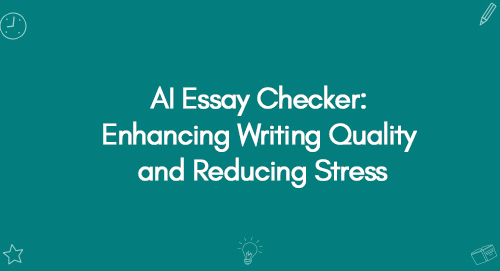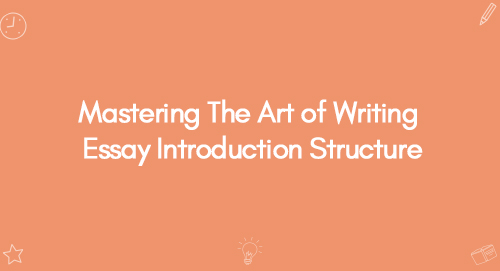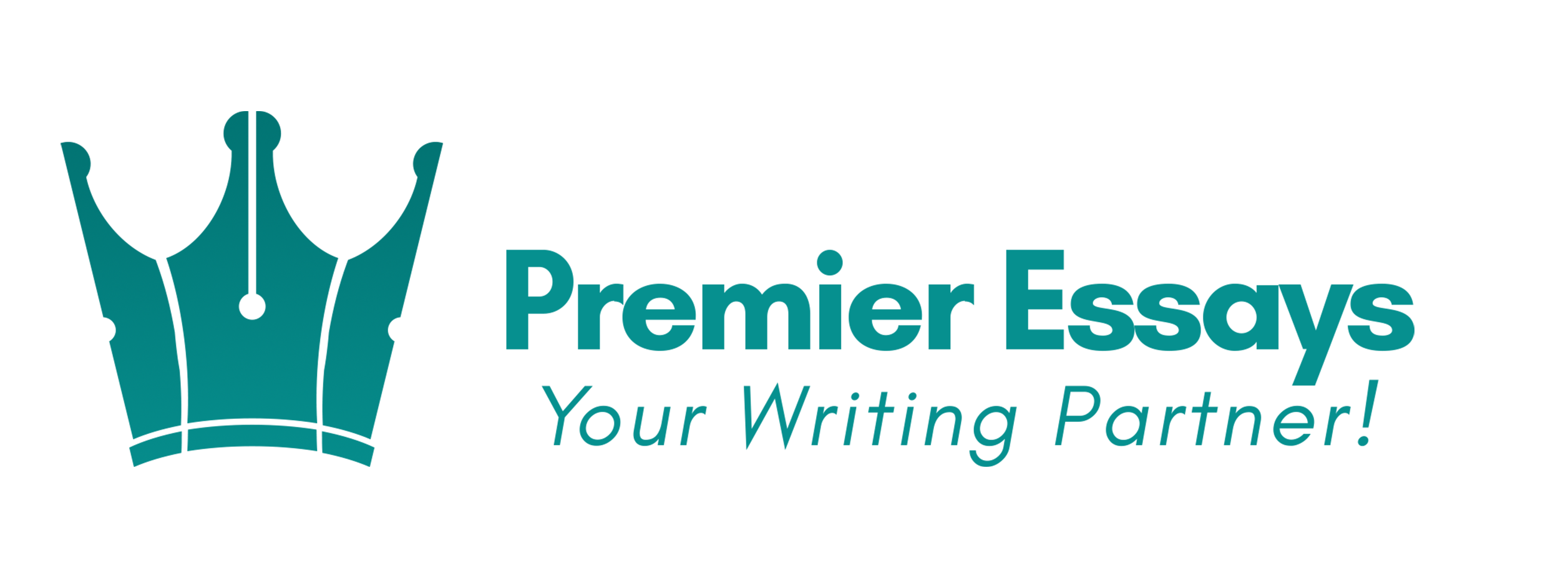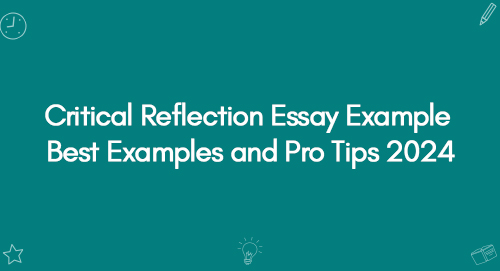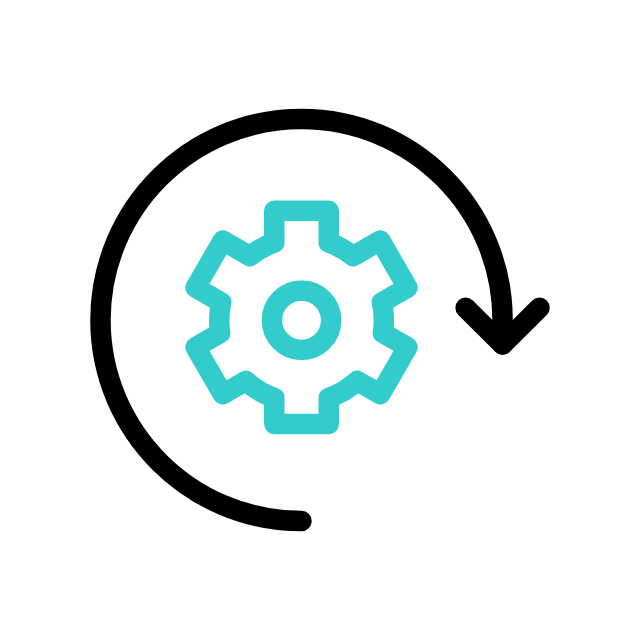Critical Reflection Essay Example | Best Examples and Pro Tips 2024
Critical Reflection Essay Example | Best Examples and Pro Tips 2024

How to Write An Evaluation Essay | The Only How-to Guide You Will Ever Need
March 8, 2024
Tips for Writing an Essay | Everything You Need to Know
March 12, 2024A critical reflection essay is a type of academic or personal writing that involves analyzing and evaluating one's thoughts or actions. Critical reflection essay links to identifying, questioning, and assessing our assumptions, knowledge, and the way we experience the world.
Learn How to Write a Reflective Essay for University
In this essay, we will explore in detail how to write a great critical reflection essay, including examples and some tips on the writing process. We’ve even thrown in examples of critical reflection essays, making this the ultimate guide for anyone needing help.
You may also like to review
Example: 1 Descriptive Essay Examples
Example: 2 Reflective Essay Examples
Critical Reflection Essay Examples
The examples provided aim to inspire and facilitate the process of critical reflective writing, fostering a culture of continuous learning and self-improvement.
A Distinctive Critical Reflection Essay Example
The first example delves into failures in an entrepreneurial journey in giving writers insights to enhance their critical reflection essay writing skills.
Title: Embracing Failure: A Critical Reflection on My Entrepreneurial Journey
Introduction
Embarking on my entrepreneurial journey was an exhilarating yet challenging endeavour. My initial optimism and eagerness to conquer the business world were soon met with unexpected setbacks and failures. In this critical reflection essay, I will delve into the highs and lows of my entrepreneurial experience, examining the lessons learned, the impact on my personal growth, and the implications for my future endeavours.
Body
- The Illusion of Success
At the onset, my venture seemed destined for triumph. The business plan was meticulously crafted, and the market research indicated a lucrative opportunity. However, the initial success quickly became a mirage as unforeseen challenges emerged. This phase prompted me to critically evaluate my assumptions about success and the importance of adaptability in the face of adversity.
- Facing Failure
As the business encountered setbacks, I grappled with a sense of failure and self-doubt. The critical reflection allowed me to confront these emotions and explore their roots. I realized that failure was not a reflection of my inadequacy but an integral part of the entrepreneurial journey. Through this introspection, I developed resilience and a newfound appreciation for the role of failure in personal and professional development.
- Learning from Mistakes
Analyzing the specific errors in my business strategy and decision-making process enabled me to pinpoint areas of improvement. The critical reflection process catalysed continuous learning, pushing me to refine my skills, broaden my knowledge base, and seek mentorship from seasoned entrepreneurs.
- Evolving Perspectives on Success
The experience significantly shifted my definition of success. No longer confined to financial metrics or external validation, success became synonymous with personal growth and adaptability. The critical reflection journey facilitated a recalibration of my goals, emphasizing the importance of holistic success that encompasses professional achievements and personal well-being.
Conclusion
My entrepreneurial journey, marked by trials and tribulations, has been crucial for my personal and professional development. The critical reflection process has been instrumental in extracting meaning from failure, fostering resilience, and reshaping my perspectives on success. While the venture may not have unfolded as initially envisioned, the lessons learned will undoubtedly serve as a solid foundation for future endeavours. Embracing failure as an inherent part of the journey, I now stand more prepared, insightful, and determined than ever.

Another Essay Example
This essay example underscores that critical reflection promotes personal and professional development.
Title: "Navigating Cultural Diversity: A Personal Journey of Understanding"
Introduction
My encounter with workplace cultural diversity presented challenges and opportunities for personal growth. In this critical reflection essay, I will explore the experiences that shaped my understanding of cultural differences, the impact on my perspectives, and the strategies I employed to navigate this complex terrain.
Body Paragraphs
- Initial Assumptions and Stereotypes
Upon entering a multicultural workplace, I carried certain assumptions and stereotypes that coloured my interactions. I realized that my preconceived notions about different cultures were limiting my ability to connect with colleagues authentically. Through critical reflection, I began to question the origins of these stereotypes and how they influenced my behaviour.
- Challenges in Communication
Communication breakdowns became evident as I struggled to convey my ideas and understand those of my colleagues from diverse cultural backgrounds. Instead of attributing misunderstandings solely to language barriers, I critically examined my communication style and cultural biases. This self-awareness prompted a shift in my approach, emphasizing active listening and adapting communication methods to bridge gaps.
- Embracing Uncomfortable Conversations
As I conversed about cultural differences, I confronted uncomfortable truths about myself. Critical reflection compelled me to acknowledge and address these biases head-on, fostering an environment where open dialogue could flourish. These conversations became crucial for building mutual respect and understanding among team members.
- Diversity for Innovation
The realization that diversity is not merely a challenge but a source of innovation became a turning point. Through critical reflection, I recognized the unique strengths that each team member brought to the table. By actively seeking diverse perspectives, I learned to harness the power of collective creativity, leading to more innovative solutions and a richer work environment.
Conclusion Paragraph
My journey in navigating cultural diversity has been transformative, marked by a continuous process of critical reflection. I have come to appreciate the richness that diverse perspectives bring to the workplace, and I have grown personally and professionally by confronting and dismantling my own biases. The ability to engage in open dialogue, adapt communication strategies, and leverage cultural diversity for innovation has enhanced my effectiveness as a team member and broadened my worldview. Moving forward, I am committed to fostering an inclusive environment that celebrates diversity as a catalyst for positive change.
A Brief Critical Reflection Essay Example
This brief 250-word example emphasizes the impact of authenticity in shaping one's perception, relationships, and resilience.
Title: "Embracing Vulnerability: A Critical Reflection on Personal Growth"
Introduction
Life's journey is a dynamic tapestry woven with moments of joy, challenge, and uncertainty. Recently, I confronted the profound concept of vulnerability and its role in shaping personal growth. This critical reflection essay explores the impact of embracing vulnerability on my perceptions, relationships, and overall well-being.
Body Paragraph 1
Acknowledging vulnerability can be daunting in a society that often prizes strength and resilience. My initial assumption was that vulnerability equated to weakness, a sentiment to be avoided at all costs. However, a critical self-reflection prompted a shift in perspective. I began to question the societal narratives that shaped my views, realizing that vulnerability is not a flaw but a fundamental aspect of the human experience.
Body Paragraph 2
Confronting moments of vulnerability allowed for authentic connections with others. As I opened up about my fears and insecurities, I discovered a shared humanity transcending superficial differences. This critical reflection process challenged the notion that strength lies in stoicism; rather, true strength emerged from the courage to be authentically vulnerable.
Body Paragraph 3
The lessons learned extended beyond interpersonal relationships. Embracing vulnerability became a conduit for self-discovery and personal growth. It fostered resilience, enabling me to navigate life's uncertainties with newfound strength. The critical reflection journey illuminated the interconnectedness of vulnerability, courage, and growth.
Conclusion
This critical reflection on embracing vulnerability underscores the transformative power of authenticity. By challenging societal norms and redefining the significance of vulnerability, I have deepened connections with others and cultivated a resilient spirit that embraces the ebb and flow of life's uncertainties. The journey of self-discovery continues, guided by the understanding that vulnerability is not a sign of weakness but a pathway to genuine strength and growth.
Free Premier Essay Writing Topics
Essay Writing is an essential part of academics which presents the ideas, arguments, opinions, or positions of the writer regarding the topic. The writer supports his claims using facts, evidence, or survey studies.
- Clear presentation or understanding of the type of essay
- An appealing introduction with an unambiguous thesis statement
- A well-defined structure of body paragraphs supporting the thesis
A prospective conclusion with an optimistic tone
Final Notes to Remember: Tips
The following points will help ease the writing process of a critical reflection essay:
- Use first-person narration, making your essay extremely personal and truly reflect you.
- In your essay, provide an organized overview of your ideas as a result of working through them and ensure that these align with your key learning objectives.
- You may open your essay introduction with a short story or quote to hook your readers' attention.
- Select the right words to express your mood and emotions. It is also important to remember that critical reflective writing has a descriptive aspect and should have many adjectives for description.
- To understand the tone and style your writing should take, read other typical reflective essays, such as those written in magazines or newspapers.
- Feel free to apply a range of punctuation. It maintains the vitality of your essay writing.
Conclusion
In conclusion, these critical reflection essays demonstrate that self-analysis and evaluation can be transformative. These examples also highlight the need for critical reflection in personal and professional growth.


